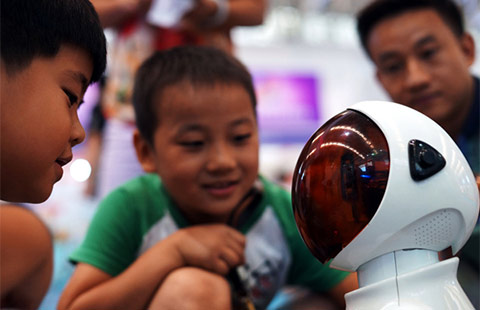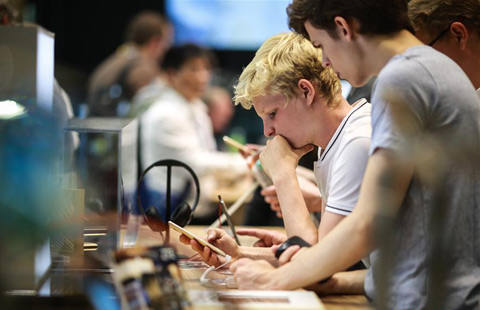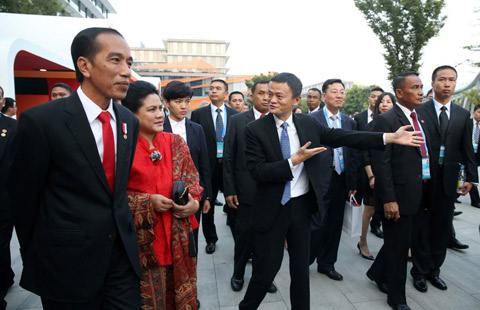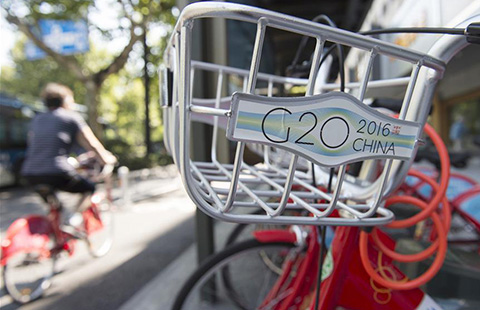Xi takes world's center stage at G20 summit
(Xinhua) Updated: 2016-09-05 02:03
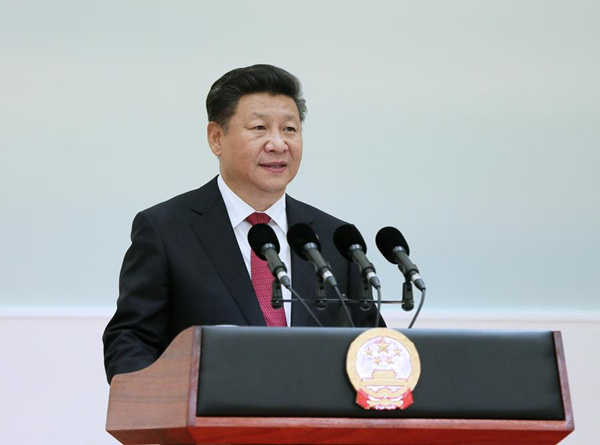 |
|
Chinese President Xi Jinping addresses a banquet for the Group of 20 (G20) summit in Hangzhou, capital of east China's Zhejiang province, September 4, 2016. Xi Jinping and his wife Peng Liyuan hosted a banquet for guests attending the 11th G20 summit in Hangzhou on Sunday evening. [Photo/Xinhua] |
The image of Chinese President Xi Jinping standing among leaders from emerging markets and developed countries sends a strong signal: that we are in the same boat, with China charting the course ahead this time.
Hours earlier, Xi, the helmsman of the world's second largest economy, had referred to boats metaphorically to stress the need of joint efforts when addressing leaders of the world's leading economies who have gathered for their annual meeting.
"To brave through the rough waters of world economy and start a new journey for future growth, it's good to know that we are in the same boat," he said in the opening address of the G20 summit.
"Let's make Hangzhou a new departure point and steer the giant ship of global economy on a new voyage from the shore of the Qiantang River to the vast ocean," the Chinese president said.
For the world's most populous nation, the Hangzhou summit on Sunday and Monday comes as an important opportunity to show the world that China has what it takes to help navigate world economic recovery.
It is the first time that Xi has chaired a G20 summit. Many hope the heavyweight get-together could set a course for global growth.
Speaking on Sunday afternoon minutes after welcoming the G20 leaders with handshakes, the president said he hoped the summit would prescribe a cure that would take the global economy onto a healthy growth trajectory.
"The therapy will take an integrative approach to address both the symptoms and root causes, and propel the world economy onto a path of robust, sustainable, balanced and inclusive growth," he said.
Called a "paradise on Earth" by 13th-century traveller Marco Polo, Hangzhou is the capital of Zhejiang, one of China's most successful provinces of which Xi was once Communist Party chief. The city's economy grew by 10.8 percent in the first half of this year, faster than most of the big cities in China.
The choice of Hangzhou as the host city of the summit well captures the role China now seeks on global stage.
As the world's most populous nation, the second biggest economy, and above all a powerful driver of global growth, China has every reason to lead.
But China beyond Hangzhou faces big challenges. GDP expanded 6.7 percent in the second quarter this year, the lowest rate since the global financial crisis in early 2009.
Xi, nevertheless, struck a rather optimistic tone on Saturday.
China has the confidence and ability to maintain medium-high growth as the country continues to deepen reform, pursues an innovation-driven development strategy, and opens up to the outside world, he told business leaders on the eve of the G20 summit.
The global circumstances in which the G20 leaders are meeting are also far from promising, but many of the issues with which the G20 is grappling are not so different from those of previous summits.
- China's oil refineries running below 70% capacity
- French business leader sees opportunity for emerging countries
- Hangzhou summit offers opportunity to reinvigorate global economy: EU leaders
- Business bignames diagnose world economy, praise China's role
- G20 Hangzhou summit opens, starting new journey for world's future growth
- Italian PM visits Xixi park of Alibaba Group
- Xi expects G20 summit to offer remedies to world economy
- Lenovo to launch an augmented-reality smartphone in China



